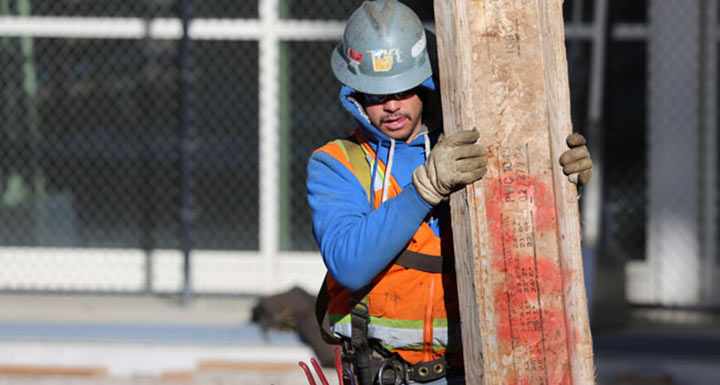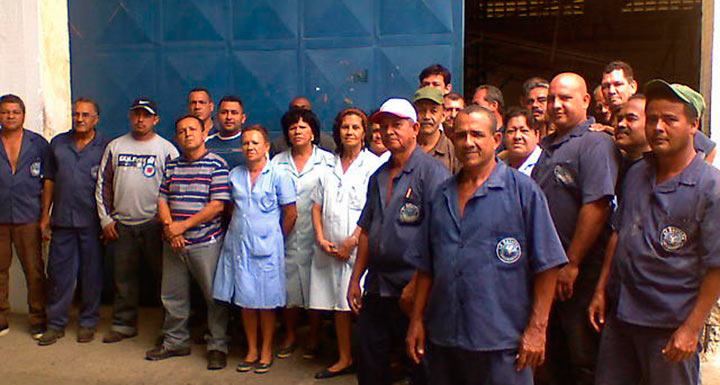
Hurting in Florida
MIAMI.- The state of Florida finds an astonishing number of ways to screw over working class people (and people of modest means more generally) but you would think it would at least make an exception for workers grievously injured while doing their jobs.
But you would be wrong. Instead, the workers’ compensation system in this state is so miserly and inadequate that it violates workers’ fundamental rights. There ought to be a law. Wait, there is one, and it is a travesty.
That’s not just my opinion. It’s also the opinion of the Honorable Jorge L. Cueto, the Miami judge who last week threw out Florida’s workers’ compensation law as unconstitutional. The judge made such an unusually strong ruling because he found that over several years the Florida legislature had so drastically shrunk medical care and wage-loss benefits for hurt workers that the state’s workers’ compensation law no longer meets constitutional muster.
Judge Cueto’s decision recognizes a basic and shameful reality: In Florida, workers seriously injured at work suffer a double misfortune.
First, there are the traumatic physical and psychological consequences of being the victim of a disabling–and often disfiguring–accident. Such an adverse life-altering event can lead to loss of self esteem, depression, even suicide.
 There are some jobs that are inherently dangerous, of course. But most workplace accidents can be prevented if employers make safety their top priority. Unfortunately, in business, profit is usually the number one priority. This too often leads bosses to cut corners when it comes to worker safety.
There are some jobs that are inherently dangerous, of course. But most workplace accidents can be prevented if employers make safety their top priority. Unfortunately, in business, profit is usually the number one priority. This too often leads bosses to cut corners when it comes to worker safety.
That’s why tough on-the-job safety and health regulations and strict enforcement are needed to reduce unnecessary deaths and disability. That’s the mission of the federal Occupational Safety and Health Administration (OSHA).
But business has hated OSHA from day one, and the agency has never had the power or resources to protect American workers. Unbelievably, things have gotten much worse with the rise of business-first Republican administrations which never met a worker-protection regulation they didn’t want to eliminate. The result is virtually a joke with workers as the butt and employers laughing all the way to the bank. And here is the punch line: OSHA has become a shadow of its former self, in effect a shadow of a shadow.
But, in the Sunshine State, beyond lax enforcement and the tough human experience of sustaining an occupational injury or illness there’s yet another whole layer of pain awaiting workers who have lost a limb in an industrial accident, been paralyzed from a fall on a construction site, or become sick from working with toxic chemicals.
I refer to the pain inflicted by the state and its sorry excuse of a workers’ compensation system, courtesy of the Florida legislature. It’s that system that came before the court, and it’s that system that Judge Cueto found violates workers’ fundamental rights and is therefore unconstitutional.
The status of workers’ comp in Florida is shocking but not surprising. The state of Florida has been in the business of trampling on workers’ rights for a long time. For one thing, it’s an anti-union state or, in the Orwellian language used to give an unfair practice a nice name, a “right to work” state. That comes down to the right to work according to the will and whims of your employer without a union to balance the scale of power to some degree. It’s also the right to work for peanuts. On average, unionized workers get substantially better wages, benefits, and workplace protection than non-union workers.
The state’s failure to give injured workers fair compensation–the judge found that benefits have been so decimated that the law, which bars employees from suing their bosses, doesn’t provide a reasonable alternative to litigation–is thus just a particularly nasty element of the top-down class war taking place in Florida (and many other states and more recently the nation) for decades.
Utopians and radicals of all stripes have declared their intention to create a workers’ paradises without ever achieving it. The state of Florida has to a significant degree succeeded in creating an employers’ paradise while denying any such intention. In 1968, the state took away workers’ right to sue and in exchange gave them workers’ compensation. This measure shielded employers from ruinous lawsuits, especially since juries usually side with employees and, in cases of outrageous employer conduct, tend to hit corporate pocketbooks hard. Thus this was never a never a good deal for the workers (nor intended to be that) but in 1968 it wasn’t the epitome of unfairness it is today.
How it became that way is succinctly described in a aptly titled (“Injured employees cheated by workers’ comp law, Miami-Dade judge says”)Miami Herald report on the present case: “…in 1990, 1993 and 2003 — among other years — the Legislature chipped away large chunks of injured workers’ benefits.”
Cueto is not alone in his stern opinion. The Herald reports the words of a three judge appeals panel that last year said it all: “This system of redress does not comport with any notion of natural justice, and its result is repugnant to fundamental fairness because it relegates a severely injured worker to a legal twilight zone of economic and familial ruin.” The ruling voided the law but, characteristically, the conservative Florida Supreme Court restored it.
Cueto’s finding only applies to small area of the state and is likely to be challenged. Thus, for most of Florida’s injured workers, it’s back to the twilight zone and to a system “repugnant to fundamental fairness” and that “does not comport with any notion of natural justice.”


